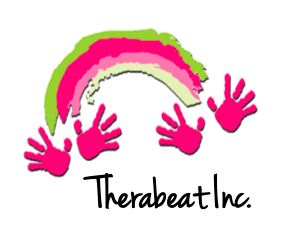Twenty years ago, it was estimated that about 50% of the American population over 85 years old had a diagnosis of dementia and over 4 million Americans were affected by this disease (Ashida, 2000, p. 171). It is now estimated that 5.8 million Americans are living with dementia (Alzheimer’s Association, 2019, p. 17). Dementia is considered an umbrella term that refers to a cognitive decline that affects cognitive function and memory. Alzheimer’s disease is the most frequent type of dementia seen among the geriatric population (Palisson et al., 2015). Dementia is a progressive disease that causes cognitive function to deteriorate over time.
There has been a growing interest in non-pharmaceutical approaches in alleviating symptoms of dementia. Prescription drug treatment has had limited effectiveness in slowing the deteriorating of cognitive ability as well as in treating co-diagnoses (Evans et al., 2019, p. 1181). A frequently occurring diagnosis with dementia is depression (Ashida, 2000, p. 171). Older adults with dementia may emotionally struggle with the loss of memory and executive planning. As long-term memory begins to fade, the individual struggles with self-identity and self-concept. This understandably can lead to a depressive or agitated mood (Ashida, 2000, p. 172).
Reminiscence has been used as a non-pharmacological treatment intervention among patients with dementia. Reminiscence involves prompting individuals to recall past memories about the self, such as previous experiences and events. These discussions are usually aided by tangible props, such as objective, photographs, or music (Haslam et al., 2014, p. 425). Because autobiographical memories are integral to a sense of self-identity, reminiscence is extremely beneficial among dementia patients who struggle with memory recall.
The body of music therapy research shows that reminiscence focused interventions are beneficial among dementia patients in increasing motivation and self-expression, evoking memories and associated feelings, and reducing behaviors related to depression (Ashida, 2000, p. 171). Music provides points of references of the important events in a patient’s life, and allows them to reconnect with past memories (Evans et al., 2019). Familiar music engages the episodic memory system among multiple sites in the brain. Reminiscence based music therapy ignites the hippocampus, which plays a major role in learning and memory retention, as well as areas in the parietal and frontal lobes (Sarkamo, 2018, p. 672).
Researchers investigated the effects of a music therapy reminiscence program on the memory skills of patients with dementia (Evans et al., 2019). The “My Musical Memories Reminiscence Programme (MMMRP)” was used over 10 sessions with the participants of the study in a group setting. Data were collected by nurses and other medical staff working with each participant. The patients participated in each session by listening to music and engaging in discussion. Results of this study showed music therapy was a beneficial non-pharmaceutical intervention to counter symptoms, such as depression and agitation (Evans et al., 2019). Additionally, the music therapy sessions allowed the patients to communicate more freely and to reconnect with memories more readily.
Ashida (2000) studied the effects of reminiscence based music therapy on the depressive behaviors exhibited in older adults with dementia. Music therapy sessions took place in a group setting in which participants were able to discuss topics such as home life, nature, events, places they previously traveled, and love (Ashida, 2000, pg. 175). The participants were observed by the music therapist as well as staff members. Video of the recorded sessions showed the participants engaging in active participation, on-task behavior and an overall positive affect. Results of this study showed a statistically significant decrease in the depressive symptoms of the participants (Ashida, 2000, pg. 181)
In designing a reminiscence-structured music therapy intervention, it is essential to use the client’s preferred music. The music is intended to be used as a catalyst to recall past events. This is only possible if the client is familiar with the music. After incorporating a known song, the music therapist should spend time engaging the clients in a song-based discussion. The music therapist could start out by asking clients if they know the song or the artist. The music therapist will then proceed to ask specific questions regarding the client’s time period surrounding this song. Example questions may include: When was the first time you listened to this song? How old were you? How did this song make you feel when you first heard it? These questions will serve as a prompt to engage the clients in residents.
The prevalence of dementia is increasing with each generation. However, there is no medical cure for this disease. Prescription drug treatments have limited success in alleviating symptoms of dementia, such as depression and agitated behaviors. Reminiscence-based music therapy has been shown to improve a client’s overall emotional wellness and to enhance a client’s episodic memory.
-Jasmine Bailey, Music Therapy Intern
References
Ashida, S. (2000). The effect of reminiscence music therapy sessions on changes in depressive symptoms in elderly persons with dementia. Journal of Music Therapy, 37(3), 170-182.
Evans, S.C., Garabedian, C., & Bray, J. (2019). Now he sings: The my musical memories reminiscence programme: Personalised interactive reminiscence sessions for people living with dementia. Dementia, 18(3), 1181-1198.
Haslam., C., Haslam, S.A., Ysseldyk, R., McCloskey, L., Pfistere, K., & Brown, S.G. (2014). Social identification moderates cognitive health and well-being following story-and-song based reminiscence. Aging & Mental Health, 18(4), 425-434.
Sarkamo, T. (2018). Music for the ageing brain: Cognitive, emotional, social, and neural benefits of musical leisure activities in stroke and dementia. Dementia, 17(6), 670-685.

